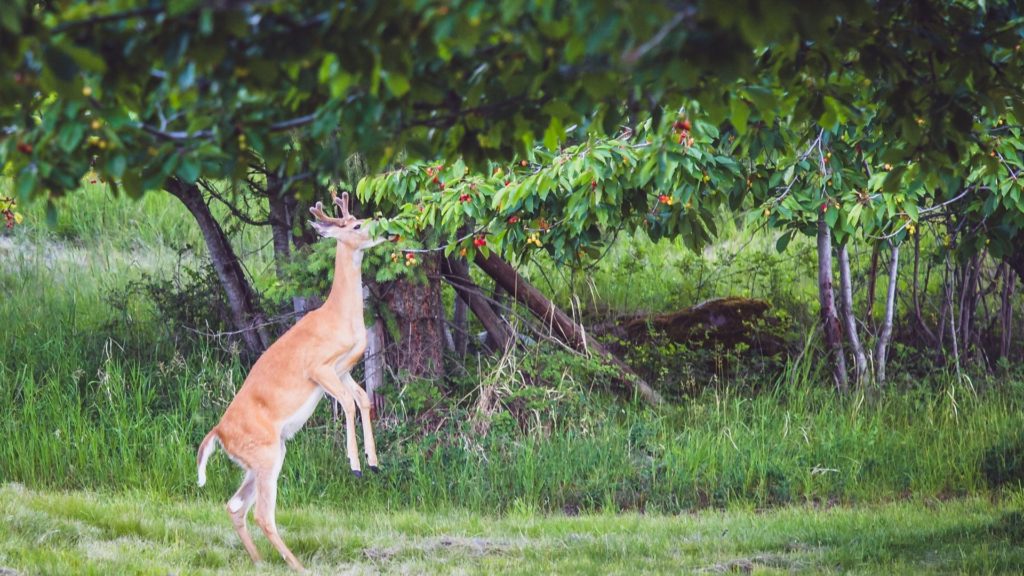Deer are gorgeous, graceful creatures — a true joy to watch. But, these majestic animals can also pose an incredible nuisance for gardeners. Whether alone or in a small herd, they can wreak havoc on the landscape, munching their way through vegetables, flowers, shrubs and even trees.
Deer can be a major nuisance to homeowners trying to grow ornamental plants like basket grass. These foragers will eat just about any plant, but basket grass seems especially tasty to them. If you’ve planted basket grass only to have it devoured overnight, don’t despair. With some clever tricks, you can protect your basket grass and finally enjoy this unique ornamental plant.
Why Deer Love to Eat Basket Grass
Understanding why deer target basket grass can help you deter them. Here are some reasons deer find this plant so appetizing:
-
Tender foliage The long slender leaves of basket grass are tender and juicy, making them very palatable to deer
-
Easy access The open growth habit of basket grasses makes their foliage easy for deer to reach and nibble on
-
Lack of thorns: Unlike rose bushes, basket grasses don’t have thorns or prickles to deter deer from munching.
-
Nutritious: Basket grasses provide nutrients like protein, minerals, and moisture that deer need.
-
Good taste: Obviously, deer must like the taste of basket grass more than other ornamental plants.
Knowing what makes basket grass so vulnerable to deer gives us clues about how to make it less appealing. Let’s look at some proven techniques.
Use Physical Barriers
One of the most effective ways to protect basket grass is to physically prevent deer from reaching it. Here are some good options:
Build a Fence
A fence around your property is the ultimate physical barrier. A fence should be at least 8 feet tall, as deer can easily clear shorter heights. For best results, use a solid wood or vinyl fence that deer can’t see through.
Install Plant Cages
For individual basket grass plants, build cages out of chicken wire or deer netting. Make the cages at least 5 feet tall with openings no larger than 2 inches so deer can’t squeeze inside.
Use Tree Guards
Plastic spirals that wrap around plant stems prevent deer from nibbling foliage. Look for sturdy tubular guards 4-5 feet tall.
Apply Row Covers
Cover plants with breathable fabric row covers to create a protective barrier. Use heavyweight covers in fall and winter to also provide frost protection.
Use Repellents
There are various topical sprays and granular products designed to deter deer through smell and/or taste. Always follow label directions closely.
Scent Repellents
Look for repellents containing putrescent egg solids or predator urine. The unfamiliar foul smells send deer looking for plants elsewhere. Reapply after rain.
Taste Repellents
Repellents with bitter tastes like hot pepper, garlic, or soap make plants unpalatable. Granular products can be sprinkled around plants.
Combination Repellents
For maximum effectiveness, use repellents that contain both smelly and bitter ingredients to deter deer.
Alter the Landscape
Making your landscape less inviting to deer is another good strategy. Here’s how:
Remove Deer Food Sources
Eliminate plants that attract deer like daylilies, hostas, and yews. Replace them with deer-resistant plants.
Increase Diversity
A diverse landscape makes it harder for deer to find their favorite foods. Mix in plants of different forms, textures, and scents.
Add Unpalatable Plants
Plant spiky, fuzzy, thorny, or poisonous plants near vulnerable ornamentals. Deer avoid plants like barberry, lavender, and daffodil.
Use Motion-Activated Sprinklers
Sprinklers with sensors that spray deer when they’re detected will startle deer and condition them to avoid the area.
Use Deer Repellent Plants
Certain plants have strong scents that naturally repel deer. Interplant these with basket grass for added protection:
- Lavender
- Catmint
- Sage
- Thyme
- Artemisia
- Alliums
- Marigolds
The aromas overwhelm deer’s sense of smell so they can’t detect the basket grass. Replant repellent plants every 2-3 years as potency fades.
Apply Fertilizer
Deer prefer munching on plants with high nitrogen content. Use a low nitrogen fertilizer formulated especially for ornamentals. Avoid manure and bone meal that attract deer.
Use Scare Tactics
Startling deer with random noises, lights, and movement can help deter them. Just be sure to change up the locations and patterns frequently so deer don’t become accustomed.
Pick the Right Spot
Finally, choosing the right planting site can make a difference. Avoid areas that deer frequent like woodland edges and travel corridors. Fence off vegetable gardens, then plant basket grass in less vulnerable spots like near patios or decks.
With persistence and variety of tactics, you can successfully protect your basket grass from ravenous deer. Don’t become discouraged if one method fails. Stay vigilant and be willing to tweak your approach until you find what works. With some clever tricks, you’ll soon be enjoying lush, graceful basket grass free of nibble marks.

No. 4: Apply a Deer-Repellant Spray to the Outdoor Plants
As long as you apply them on a routine basis, spray deterrents can help stop deer from eating your plants.
Dozens of commercially-made brands are available, most of which use a foul scent and terrible taste to deter deer. Or, try one of the many recipes for homemade spray repellants. Customers have reported having success with various blends of eggs, hot sauce, garlic and clove oil.
No. 2: Place Bar Soap Near Outdoor Plants
To keep deer away, many Utah gardeners turn to ordinary bar soap. The scent is said to interfere with their sensitive sense of smell.
Choose a brand with a powerful fragrance, and hang bars from strings in trees or large shrubs. Or, attach soap bars to stakes and place them around the edges of your garden beds to keep the deer at bay.
Keep Deer Away From Your Plants! Wireless Deer Fence. Deer Spike Post Repellent Deer Training System
FAQ
What smell do deer absolutely hate?
